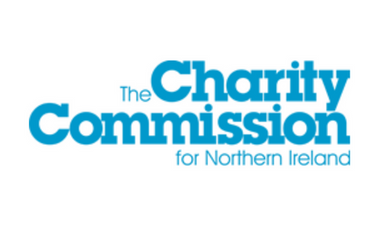The Charity Commission for Northern Ireland (CCNI) has proposed that a number of its functions should be delegated to staff.
Last year, the Northern Ireland government’s Charities Act 2022 allowed for some of the CCNI’s decision-making functions to be delegated to staff, as they are in other jurisdictions.
The proposed scheme of delegation lists all regulatory decisions required of the Commission that can be delegated, along with which of three proposed groups could take those decisions.
These three groups are the Commission, which would include a decision-making Committee, the senior management team, and staff generally, who are trained caseworkers, supported by an in-house legal team.
The proposed scheme also reserves some powers to the commissioners, for example, to conduct an inquiry or appoint a person to conduct it and make a report to the Commission, and the decision to waive or not waive a person’s disqualification for being a charity trustee.
A consultation opened on 20 March 2023 and closed on 12 June 2023.
Chief Officers Third Sector (CO3) responded to the consultation, stating: “The role of the Commission to ensure that charities are well run, open and transparent must sit alongside its ability to make its decisions quickly and cost effectively whilst acting within the appropriate legal framework. The Commission must ensure that decisions are lawfully made at the appropriate level in the organisation and we judge the proposed scheme of delegation will be able to achieve that.”
It added: “The scheme of delegation rightly reserves some matters for only commissioners, and others only for senior management team, but allows for a more effective balance of cost and timeliness.”
Foundation boss calls for more sustainable funding
Meanwhile, a charitable foundation has called on government departments to support the community and voluntary sector by making funding more accessible, streamlined and sustainable.
Roisin Wood, chief executive of the Community Foundation for Northern Ireland, said the “sector has suffered an incredibly rocky financial year”.
“We have seen the ending of the European Social Fund, the failure of the Shared Prosperity Fund to match the loss of funding to the sector, and on top of that successive government departments cutting funding for vital community-led initiatives, programmes and organisations.
“The current trend is that the sector continues to lurch from crisis to crisis in terms of sustainable funding streams. It is imperative that we change for the better the way the community and voluntary sector is funded.”
She added: “Failure to do so is a false economy. The lack of investment today into the sector will only cost much more, further down the line. When key community services that improve people’s health and mental wellbeing, skills and employability and financial position within our society are removed we are only kicking a much bigger problem down the line in terms of an ever-shrinking budget from Stormont.”
APG set up
Elsewhere, the Northern Ireland Council for Voluntary Action (NICVA) has announced it will be the secretariat for the newly created All Party Group for the Voluntary and Community Sector at Stormont.
Chief executive Celine McStravick said: “Our members have told us one of the most important things NICVA does is to advocate on their behalf and get access to decision-makers, this APG will allow us to do that even more.
“NICVA will act as the secretariat and the link between our sector and the APG at Stormont – a vital service as our sector is facing the sharp end of cuts.
“Once approved, we’ll be talking to the sector about what is important to them and developing a focused work plan, working hard to highlight the issues affecting us and influencing change.
“NICVA is the voice of the sector and this further ensures that voice will be heard”.
Related Articles













